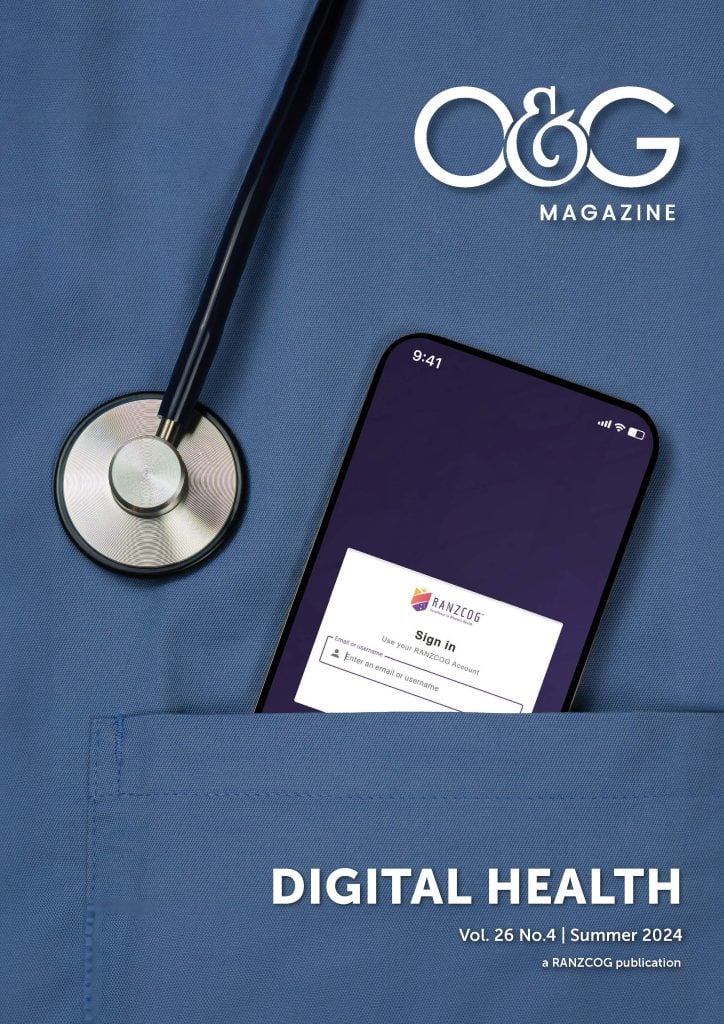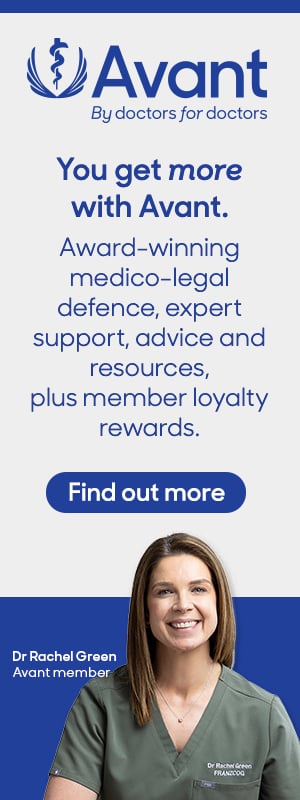Several years ago, we began to see the emergence of patients who consulted the Internet to search for health information, the so-called “Dr Google”. More recently, likely accelerated by COVID-19, these internet sources seem to increasingly be social media platforms—where qualifications, research and science may mean very little, but being an “influencer” ensures your voice reigns supreme.
One large study of women in 2019 reported that 96% had used the Internet in search of health information (Covolo, April 2022). Over half (53%) had accessed the internet for health information after being seen by a medical professional. Participants primarily cited the need for more detailed and comprehensive information as their reason for doing so. But which sources are they turning to for this information? Lifestyle sites, social media and health blogs accounted for the majority, with only 7.6% of non-healthcare workers seeking information from specialists or hospital websites.
In the Spring issue of the O&G magazine, Dr Katie Ryan asked the question, “Should we accept that social media has become an accessible and therefore integral part of health education and be more proactive in joining the chorus of voices in an effort to balance misinformation online?” (Ryan, Spring 2024)
As someone who accidentally created an obstetric social media account that has gained a reasonable following, let me share some of the lessons I have learned in this space.
Check Your Motivations
In 2018, having just entered private practice, I found myself not only thrust into the responsibilities of what that means as a practitioner, but also the challenges that come with starting a business. I designed a logo, made business cards, created a website and a new Instagram profile, simply because it seemed like ‘the thing to do’ from a marketing perspective. But what to post? What was the message I wanted to share? I had no clue! I started gently, re-posting others’ content that interested me or sticking to safe topics such as recognising International Days of significance. Was my content raising health literacy? Maybe. Was it riveting? No.
I quickly learned that my followers responded more when I added a personal touch or shared real-life examples. But without breaking doctor-patient confidentiality it was hard to know where I was going to get that kind of content. The breakthrough came when a woman asked if she could share her birth story on my page. I hadn’t been involved in her medical care, and I ensured that details identifying where she received care were removed. She shared her story, including all the challenges she had overcome, with the goal of inspiring others—and inspire she did! There was an outpouring of support and gratitude from people who connected with her story.
Among all the responses were other women who asked if they too could share their stories. There were stories of harrowing complications and stories of births as victorious as it gets. Women opened up about their post-natal depression, and others shared their grief over their losses. It felt like many were sharing their stories as a therapeutic tool for themselves, but it was also encouraging others who had experienced similar journeys. Additionally, it brought education about the realities of birth to an audience of women who had only ever seen it portrayed in the movies.
I realised this was much bigger than myself or my practice and it became my motivation. My social media platform now focused on combating the false message that birth for can and should look like a serene scene of a woman breathing out her baby in a bath. It was about sharing the full spectrum of what birth might look like—home birth, hospital birth, vaginal birth, caesarean, blood and poop and everything in between. I created a hashtag #100birthstoriesin2020 and I asked for submissions. I had to quickly remove that request after I was flooded with offers and I couldn’t keep up!
What I learned through all of this is that the priority was to find my authentic voice. I discovered a topic I was passionate about, one that I had the tools to educate others on, and I learned how to share that message in a way that resonated with my audience.
Establish Boundaries
A major drawback of having a public profile is the keyboard warriors and trolls. I had to figure out how to deal with them and what impact I was going to allow them to have on my life.
At first, I was naïve enough to think that if all I’m doing is sharing women’s birth stories in their own words, I couldn’t possibly receive any personal abuse. But people love to create drama, and pick fights where they can. I receive a barrage of messages from people who feel they need to show me the error of my ways if I dare to post images of babies with dummies or being artificially fed. And don’t even get me started on what happens if I share stories of women who chose things like a caesarean on maternal request! But worse than receiving hateful personal attacks (fancy being called a ‘birth rapist’?) are the hateful comments left for the women who have been brave enough to share their stories.
To combat this, I saw four options. I could turn off comments altogether so no one can say anything, I could read every comment and delete/block those I found inappropriate, I could engage with the haters by responding, or I could ignore them. I usually choose the latter. I believe in the freedom of personal expression, so censoring comments doesn’t seem ideal, and engaging with ignorant people making ignorant statements typically achieves nothing. Often, other followers will engage on my behalf, and the fact is that positive comments outnumber the negative ones every time.
As for reading every single comment, I learned long ago to turn off my notifications. The little ding used to stop me in my tracks, prompting me to find out if it was something nasty or nice. I quickly found that this was very bad for my mental health. Reminding myself that I have higher priorities and that I am worth more than my Instagram account was an important step in overcoming this.
Embrace the Opportunities
As my follower count grew, so did the offers and invitations, which wasn’t expecting. Initially there was the usual spam and scams that aren’t even worth reading. Then there are the offers from health-related products and businesses that want to “partner with me”. Maybe these were worth investigating further—after all, there could be a product I wasn’t familiar with that might actually be worthwhile for my patients. But it’s very unlikely I would ever endorse a product on my social media. In these instances, respond with tact. Lastly, there were invitations to speak or teach, join podcasts, participate in interviews, and present at conferences. I often say yes to these types of invitations as they allow me to reach a wider audience. You never know what might lead to the next occasion that might effect change.
But more than the personal opportunities my social media profile has provided, its true value lies in its potential to positively impact others on a large scale. In 2021, I posted a birth story from one of my own patients. It was a Maternal Assisted Caesarean. This story not only represented her journey, but also mine as we had worked towards achieving this technique for the first time at our hospital. Her story, and the subsequent Maternal Assisted Caesareans I shared, went viral. I began receiving requests from both women and healthcare providers all over the world asking how they could perform something similar at their own hospitals. I was happy to help in any way I could, and to date, I believe I’ve impacted at least 11 countries (I’ve lost count of how many different hospitals) in achieving their first Maternal Assisted Caesarean.
Final Thoughts
In a world where patients are accessing social media for more easily consumable health information but are less discerning about which sources they rely on, I believe it almost becomes a duty of care to show up in this space. However, there are possible personal drawbacks for individuals who do, so be prepared for the battle. Having a clear message, and of course a factually correct one, that you’re passionate about sharing is important, and the benefits of effecting change will far outweigh the negatives.
References
- Covolo, L. G. (April 2022). Exploring the Online Health Information-Seeking Behavior in a Sample of Italian Women: The “SEI Donna” Study. Int J Environ Res Public Health, 14;19(8):4745.
- Ryan, D. K. (Spring 2024). Birthing in the Age of Social Media. O&G Magazine, Vol 26 No 3.






Leave a Reply